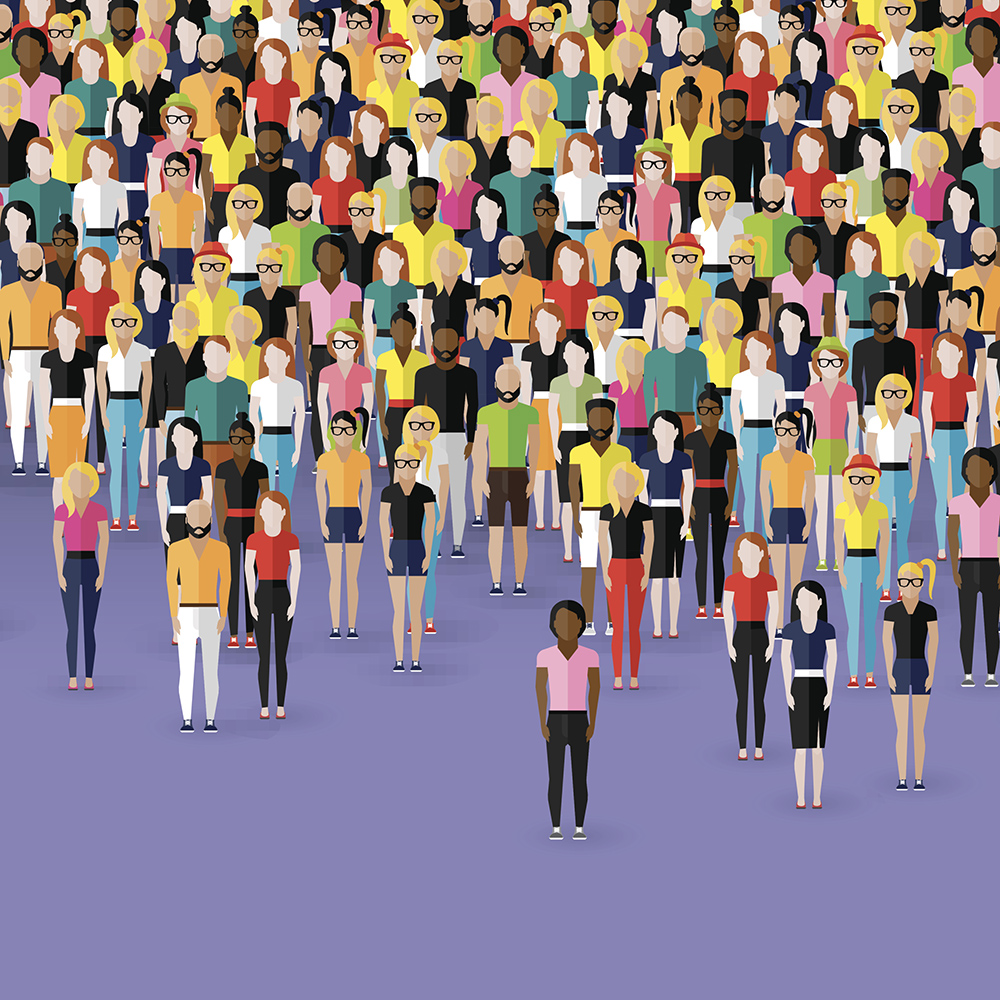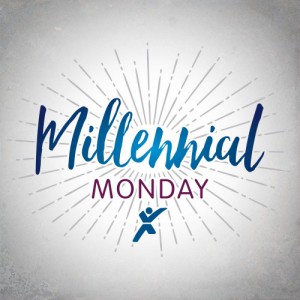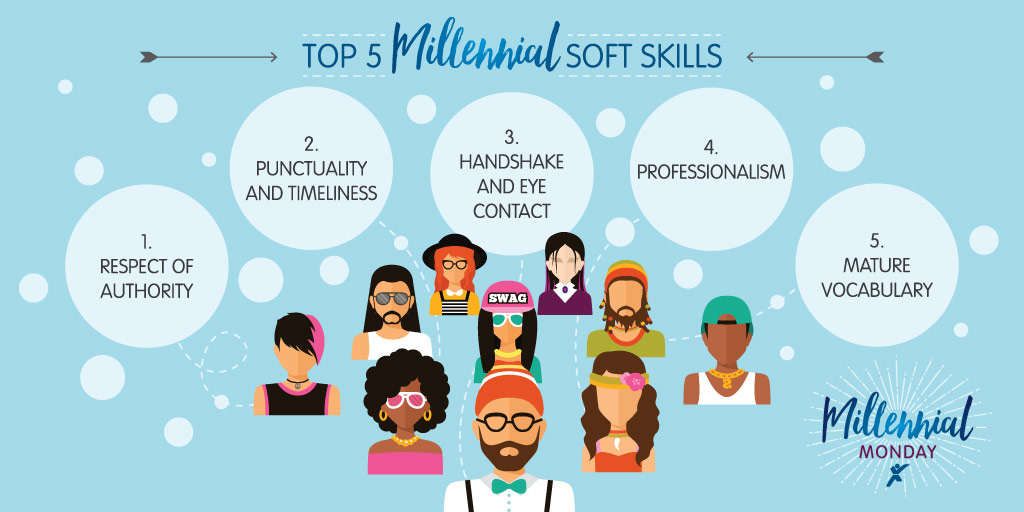Your dad has most likely been the source of some of your most memorable conversations. Many of those lessons can apply to your professional life as well. Let’s look at three generations of fathers and the career lessons they might have to help you succeed at your job. (more…)
 As Baby Boomers retire, Millennials move into key roles, and technology advances, learning how to navigate a changing workforce can be tricky, but only if you don’t plan for it. Because there are many ways you can navigate this changing workforce, we wanted to know what Movin’ On Up readers are doing to prepare.
As Baby Boomers retire, Millennials move into key roles, and technology advances, learning how to navigate a changing workforce can be tricky, but only if you don’t plan for it. Because there are many ways you can navigate this changing workforce, we wanted to know what Movin’ On Up readers are doing to prepare.
The Results
According to our poll, most respondents (29%) said they’ve prepared for a changing workforce by improving their technological skills via online classes, books, etc. Another 21% selected “updated my social media account(s) to reflect my professional brand” as their preparation method.
The other answer choices received the following percentage of votes:
- Connected with a mentor from an older generation – 13%
- I haven’t done anything to prepare for a changing workforce – 12%
- Joined an employee development program – 11%
- Connected with a professional from a younger generation – 11%
Additionally, readers were able to select the “other” option and provide their own responses. Of the 3% who selected that option, responses included:
- Attended classes and earned a certification in my new career field
- Networking and improving communication and public speaking skills
Are there other ways you’re preparing for a changing workforce? Let us know in the comments section below.
Movin’ On Up is brought to you by Express Employment Professionals.
 Today’s workforce is in the middle of a transformation that is altering the way employees, new and old, work on a daily basis. With technological advances, a shift in the overall age and work style of employees, and more, it can be tough to discern how to effectively manage one’s career and be an effective employee. But, never fear! We’ve compiled some tips to help you navigate this unique time in your career and survive in today’s changing workforce.
Today’s workforce is in the middle of a transformation that is altering the way employees, new and old, work on a daily basis. With technological advances, a shift in the overall age and work style of employees, and more, it can be tough to discern how to effectively manage one’s career and be an effective employee. But, never fear! We’ve compiled some tips to help you navigate this unique time in your career and survive in today’s changing workforce.
Be flexible.
The workplace of today is not the same as it was in years past. You may end up at a company where shared workspaces and collaborative meetings are the norm, rather than individual cubicles or offices. Work schedules may also be different from what you’re used to or would expect. Instead of being frustrated or thrown off by the way companies are evolving, keep your stress levels in check to stay productive in this ever-changing environment.
Take advantage of training.
Whether it’s an internship or company-offered training, don’t shy away from opportunities to learn and add value to an organization. As baby boomers retire and younger generations fill those roles, employees and job seekers should bridge the skills gap by taking it upon themselves to be trained and ready to step into those shoes.
Keep a balanced life while working hard.
As younger generations move into roles, there is a stronger desire for improved work-life balance. Regardless of what your employer promotes, keep in mind that you will still have to put in the hours to work your way up the company ladder. The commitment to work hard isn’t a quality employers expect to see disappear. If your company does promote a strong work-life balance, be sure to utilize it without abusing it. Your life outside of work is full of people who are important to you, and finding a good balance will keep you happy in years to come, regardless of change.
Develop your skills.
Today’s changing workforce requires employees to be able to think critically across disciplines, while also being able to communicate effectively. As you adapt, it’s important to consider what skills you bring to the table. People skills are just as important as business and technical skills, and companies will want to know what value you can add to their business.
If you’re wondering where to get started, one option may be to engage a mentor or someone who can help develop those soft skills and give you guidance on achieving success. With the generational variety in the workplace now, it’s a great time to build relationships and learn from other age groups.
Get connected.
As social media continues to grow, it’s important to utilize these platforms to promote your professional brand and establish key career connections. While a traditional resume is still required for most job applications, a social profile promoting your skills and accomplishments can go a long way, as well. With the easy access, you can use social media to network, share your ideas and work examples, and demonstrate your personality to potential employers before they even meet you.
A word of caution: Be smart about what you’re posting on social media. For tips on how to clean up your social media accounts to garner positive attention, view this Movin’ On Up article from April.
Can you think of other ways to survive today’s changing workforce? Share with us in the comments section below!
Movin’ On Up is brought to you by Express Employment Professionals.
 Express Employment Professionals recently teamed up with the School of Media and Strategic Communications at Oklahoma State University (OSU) in Stillwater, OK, to conduct research about Millennials and their attitudes toward the American Dream. Also known as “Gen Y,” Millennials were born between 1979 and 1995 and currently make up 30% of the population. As they enter the workforce and establish career paths, it’s important to understand the motives and desires behind this robust generation. To help you get to know “Gen Y,” Movin’ On Up is bringing you an eight-week series titled “Millennial Monday.”
Express Employment Professionals recently teamed up with the School of Media and Strategic Communications at Oklahoma State University (OSU) in Stillwater, OK, to conduct research about Millennials and their attitudes toward the American Dream. Also known as “Gen Y,” Millennials were born between 1979 and 1995 and currently make up 30% of the population. As they enter the workforce and establish career paths, it’s important to understand the motives and desires behind this robust generation. To help you get to know “Gen Y,” Movin’ On Up is bringing you an eight-week series titled “Millennial Monday.”
In this week’s installment of “Millennial Monday,” Express and OSU students surveyed Millennials, the majority of whom are working full or part time, to examine whether or not there is a soft skills gap between generations.
Generations in the Workforce
There’s no denying that the current workplace features multiple generations of employers and employees. As the Baby Boomer generation looks toward retirement, Generation Xers continue on their career paths, and Millennials enter the workforce, many different age groups are brought together. In fact, according to our survey, the majority of Millennials (57%) work with people outside of their age group.
Communication Among Generations
When asked how they best communicate with older generations, Millennials responded:
- In person – 71%
- By phone – 15%
- Via email or computer chat – 13%
The Importance of Soft Skills
When it comes to the most important business etiquette and expectations in the workplace, Millennials and Non-Millennials tend to disagree. For Millennials, the top three skills are:
- Respect of authority
- Punctuality and timeliness
- Handshake and eye contact
For Non-Millennials, however, the top three skills are:
- Punctuality and timeliness
- Handshake and eye contact
- Mature vocabulary
While Millennials ranked “mature vocabulary” fifth out of six skills, Non-Millennials ranked it third. Likewise, “respect of authority” was number one for Millennials, but fifth for Non-Millennials.
More Workplace Skills
Other soft skills evaluated in the study include eye contact, professional attire, and the ability to seek out creative inspiration. Of the Millennial respondents, 93% feel comfortable with eye contact, and the majority (70%) would prefer to wear business casual attire in the workplace. The top five sources for Millennial’s creative inspiration are:
- Art – 30%
- Books – 23%
- Nature – 12%
- Spirituality – 12%
- The internet – 11%
What skills do you think your generation has to offer the workforce? What skills do you think your generation lacks? Share your thoughts in the comments section below!
Keep checking Movin’ On Up every Monday for more insight on this important generation.
Miss a week? Click the links below to check out previous topics in our series.
- First Generation Millennials and the American Dream
- Millennials and Money Management
- The Workplace Millennials Want
- Technology and the Workplace
Movin’ On Up is brought to you by Express Employment Professionals.
![]() The workforce is evolving as Baby Boomers retire, Millennials move into key roles, and technology continues to advance. Learning how to navigate a changing workforce can be tricky for everyone, from seasoned employees to those just entering the workforce, but only if you aren’t prepared. Fortunately, there are several ways to adapt to a changing workforce and be the best professional you can be.
The workforce is evolving as Baby Boomers retire, Millennials move into key roles, and technology continues to advance. Learning how to navigate a changing workforce can be tricky for everyone, from seasoned employees to those just entering the workforce, but only if you aren’t prepared. Fortunately, there are several ways to adapt to a changing workforce and be the best professional you can be.
Whether it’s engaging a mentor, joining a development program, or simply figuring out where to get started, we want to know how you’re preparing for a changing workforce.
Are there other ways you’re preparing for a changing workforce? Let us know in the comments section below.
Movin’ On Up is brought to you by Express Employment Professionals.
The millennial generation was born, raised, and influenced by technology.
Just as quickly as technology changes and evolves, the focus of millennials also changes as new information and opportunities are continually made available to them. And, according to Forbes, they’re the same way in their careers.
Check out this infographic from Notre Dame Online outlining the millennial mindset of the workplace and the nature of their work ethic. This information can help millennials research their next career move before making costly career leaps. And even if you’re not from Generation Y, you can learn how they think and what’s important to them so you can learn to build better working relationships with your millennial co-workers.
Do you agree with the infographic’s depiction of the millennial generation? Let us know in the comment section below.
 Hosting multiple generations in the workplace is becoming an important issue among employers. Right now, there could be as many as five different generations working together. And, the generation that can feel the most stress is the Millennial generation. While older generations have their own hurdles to overcome, the youngest generation has a lot to prove because they have very little experience to support their big plans for the future.
Hosting multiple generations in the workplace is becoming an important issue among employers. Right now, there could be as many as five different generations working together. And, the generation that can feel the most stress is the Millennial generation. While older generations have their own hurdles to overcome, the youngest generation has a lot to prove because they have very little experience to support their big plans for the future.
Millennials, those born on or after 1980, have a bad reputation of being uncommitted job hoppers who want the meatier projects now instead of earning them over time. But the reality is, Millennial job seekers and workers can provide huge benefits to employers.
Millennials Kiss and Tell
According to a CareerBuilder survey, 96% of Millennial job seekers discuss their job searching experiences with others, including in person and on social media. Millennials can help an employer with their bottom line by improving public opinion. People are looking for organizations that are transparent, and the more positive feedback a Millennial employee can add to the increasing louder voice of customer opinion, the better.
Millennials Search for the Final Frontier
Young job seekers have a goal in mind, will go where opportunity knocks, and are much more likely to accept job offers that require them to relocate. Younger job seekers commonly aren’t limited to their local job market, which means more job openings and greater chances of success. Fewer Millennials have families or other responsibilities that older, more experienced job seekers have to keep in mind.
Millennials Have Their Eyes on the Prize
Most Millennials have something to prove. If they can’t make their own opportunity for themselves, they will go somewhere else. While many see that as a disadvantage, young job seekers can turn that into an advantage. They are hungry and looking for opportunities to advance, which means that if the opportunities exist, the employer can have an engaged employee for the long term. This drive and motivation can offset any lack of experience and separate young job seekers from the competition.
Millennials are Rich…With Information
Have you heard the phrase, “Time is money?” Years ago, knowledge was highly valued because it took time to find the information you needed. But thanks to the age of the internet, almost any piece of information can be found with the click of a button. Millinneials are also attached to their smartphones, which helps them be more adept to finding directions, answering trivia, solving problems, or getting the latest news and events.
Millennials can find information quickly and easily. They can provide value to employers by demonstrating how connected and informed younger job seekers are and how that behavior can benefit the employer.
Don’t worry Millennials, your time is coming. Pew Research predicts Millennials will make up 75% of the job market by 2025. The workplace and those working in it are constantly changing, and who knows what it will be like 10 years from now, but those who are taking their first steps in their career can highlight some strengths and demonstrate the value those “kids” can bring.



